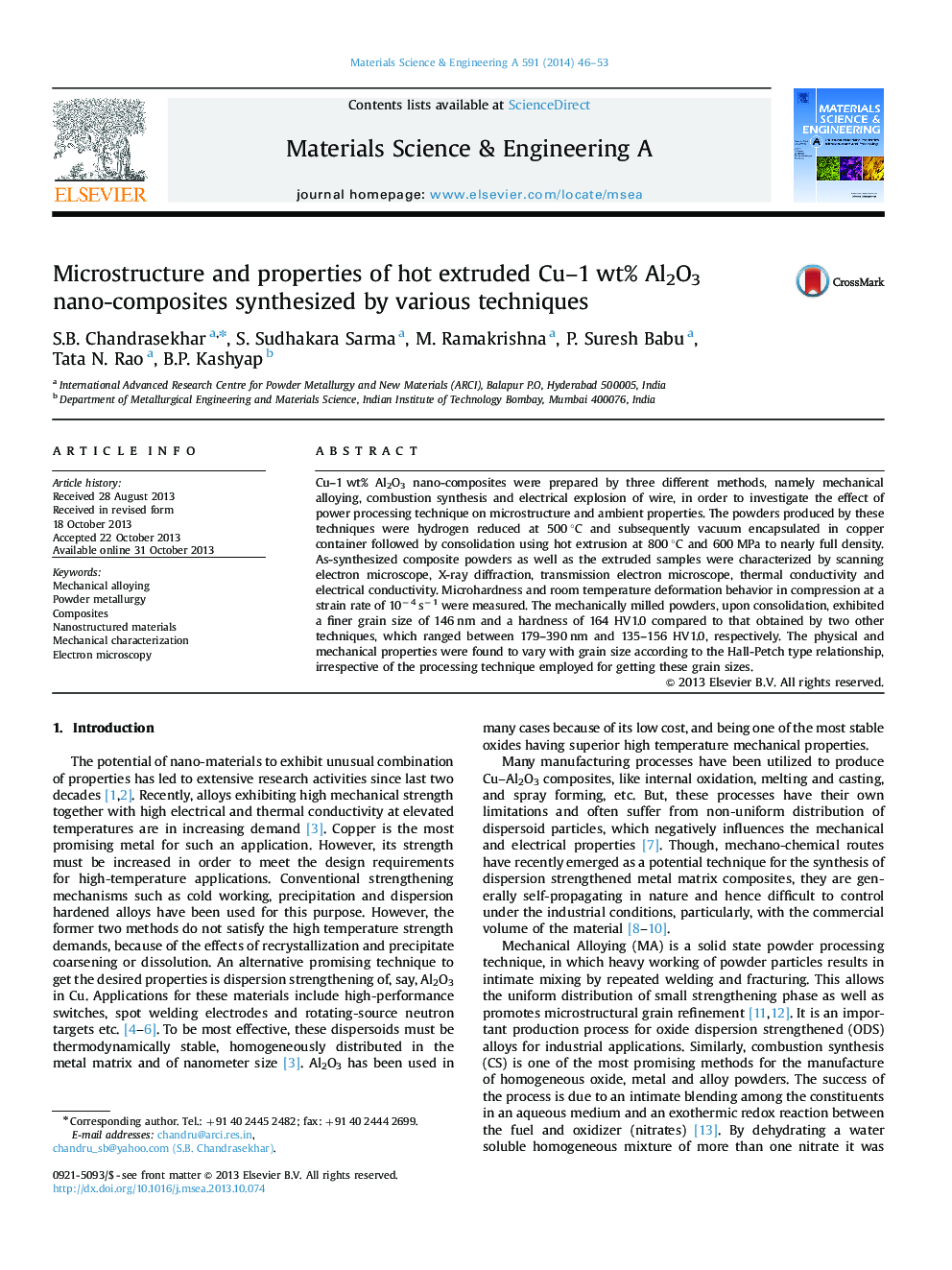| Article ID | Journal | Published Year | Pages | File Type |
|---|---|---|---|---|
| 1575536 | Materials Science and Engineering: A | 2014 | 8 Pages |
Cu–1 wt% Al2O3 nano-composites were prepared by three different methods, namely mechanical alloying, combustion synthesis and electrical explosion of wire, in order to investigate the effect of power processing technique on microstructure and ambient properties. The powders produced by these techniques were hydrogen reduced at 500 °C and subsequently vacuum encapsulated in copper container followed by consolidation using hot extrusion at 800 °C and 600 MPa to nearly full density. As-synthesized composite powders as well as the extruded samples were characterized by scanning electron microscope, X-ray diffraction, transmission electron microscope, thermal conductivity and electrical conductivity. Microhardness and room temperature deformation behavior in compression at a strain rate of 10−4 s−1 were measured. The mechanically milled powders, upon consolidation, exhibited a finer grain size of 146 nm and a hardness of 164 HV1.0 compared to that obtained by two other techniques, which ranged between 179–390 nm and 135–156 HV1.0, respectively. The physical and mechanical properties were found to vary with grain size according to the Hall-Petch type relationship, irrespective of the processing technique employed for getting these grain sizes.
